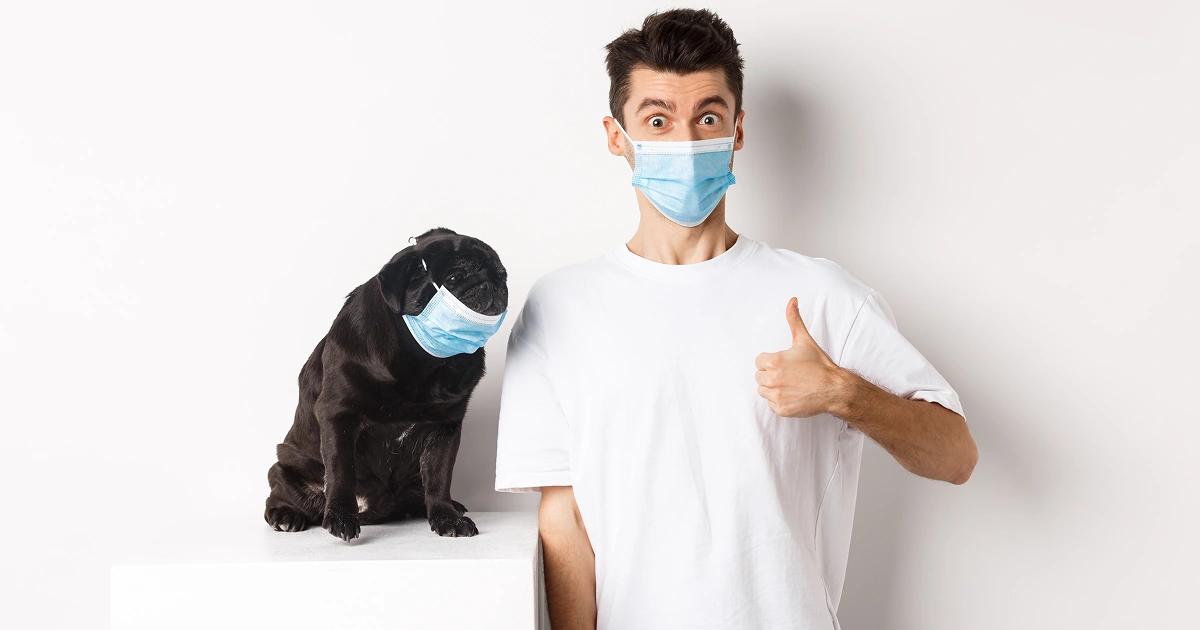There are still a lot of unknowns when it comes to the latest strain of coronavirus, COVID-19. But one thing that many scientists and medical professionals agree on is that pets have a very low likelihood of contracting and spreading the disease. According to the Centers for Disease Control and Prevention (CDC), “We do not have evidence that companion animals, including pets, can spread COVID-19.”

Research has shown that the virus can live on surfaces for varying periods of time, but they tend to live the longest on hard surfaces, not soft surfaces like fur. There were a few reports from China and Hong Kong about potential canine infections of the disease, but further research showed that these animals likely did not have COVID-19, but rather picked up particles of the virus from their surroundings. They did not show any signs of illness or transmission to humans.
Practicing Increased Safety Around Pets
However, there are ways that you can be more proactive about protecting yourself and your pets during these uncertain times.
1. Wash your hands regularly. If you spend time petting your dog or cat, or playing with them, try to avoid touching your face, and wash your hands when you are finished. This is not only true during the coronavirus pandemic, but any time. It is a good strategy for reducing the spread of germs in general.
2. Separate anyone who is sick. If someone in your home is showing signs of coronavirus or any other communicable disease, keep them separate from other family members in the home as well as pets. Avoid letting your pet cuddle up with them or letting the person be licked or kissed. While this can be hard because many people find their dog or cat to be a source of comfort, remember that it is only for a short time until the person has recovered.
3. Enhance cleaning. Step up your cleaning to reduce risk of spreading any germs. Wipe down surfaces more frequently, wash your clothes if you’ve been out in public or cuddling closely with your pet, and continue to regularly wash your hands. Remind everyone in your family to do the same.
4. Pay attention to your pet’s health. If your dog seems to be acting out of the ordinary, note any changes or symptoms they may be exhibiting. Call your veterinarian to discuss over the phone before bringing your pet in, unless it is an emergency. Because there is still a lot to be learned about this disease, there is a COVID-19 test that can be administered to animals just to err on the side of caution.
Keep Your Pets Safe
If you must travel during this time, please make your safety a top priority. Remember to wash your hands frequently, avoid touching your face, and try to stay at least six feet away from others. Keep your pet safe as well by boarding them at Lake Wylie Pet Resort while you are gone. Rest assured that staff is taking proper safety precautions and ensuring that animals are well cared for during this challenging time for our nation and the world. Contact us for more information.


